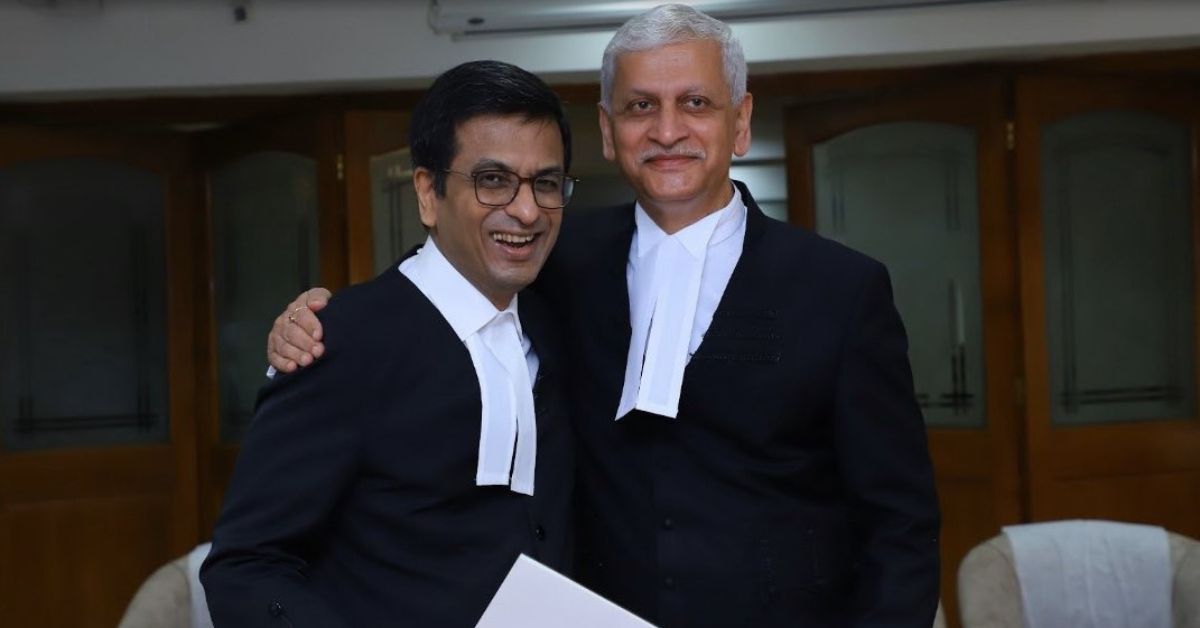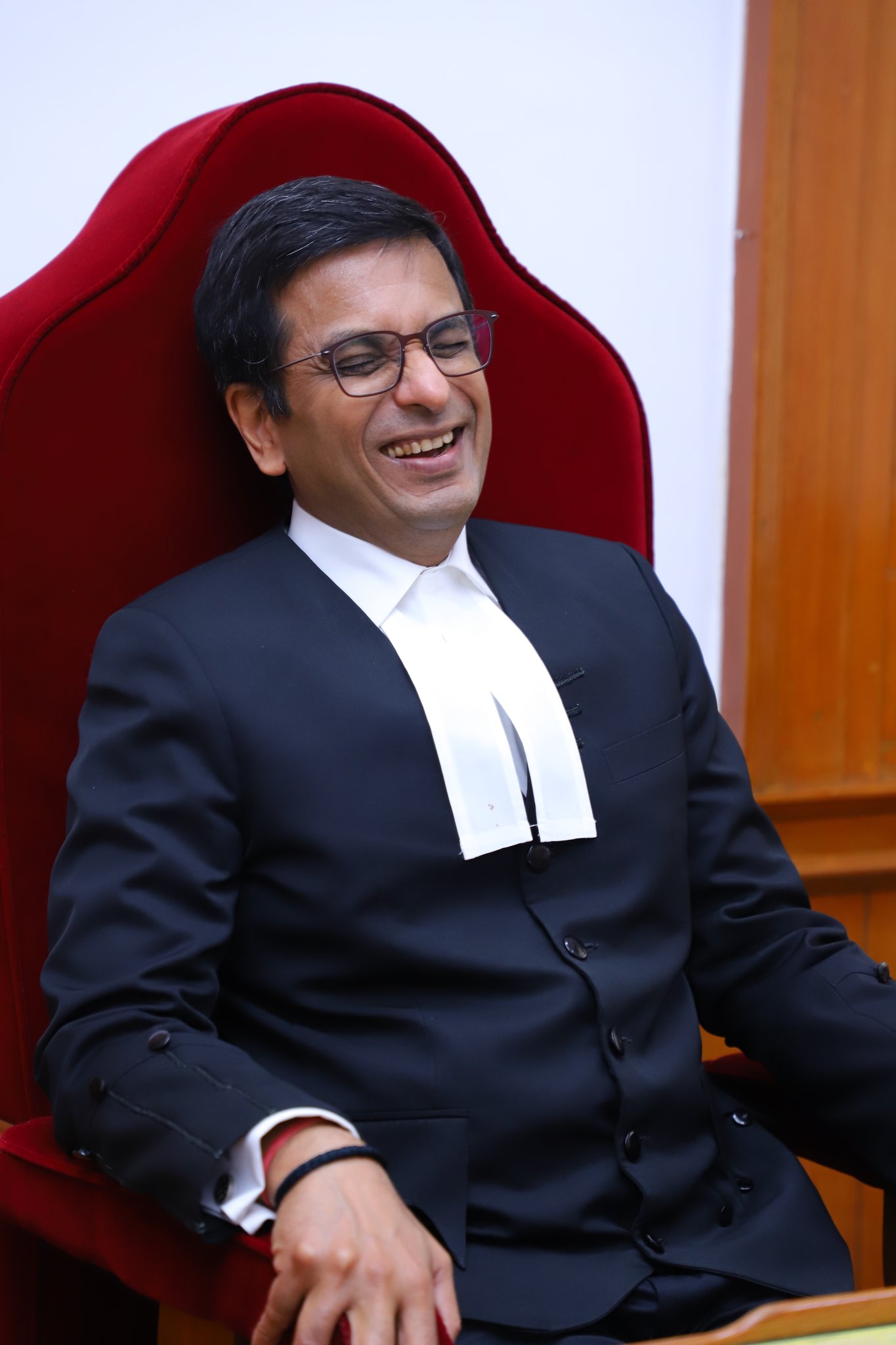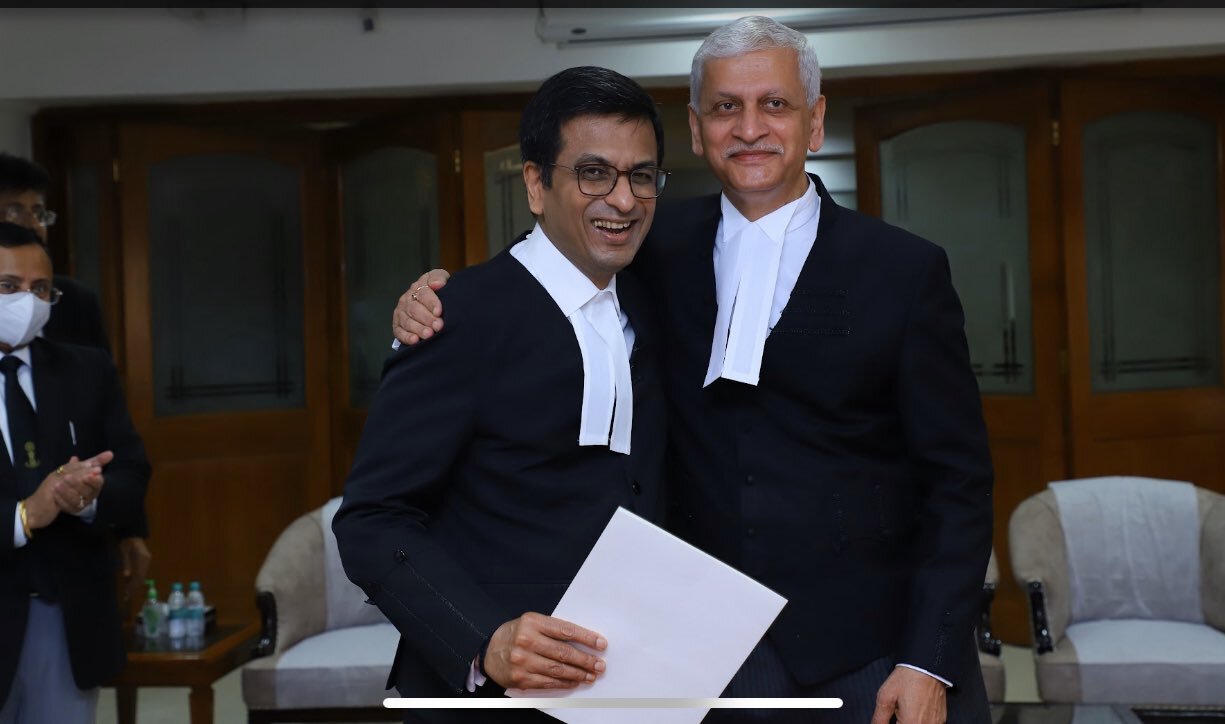‘Dissent Is Symbol of Democracy’: 5 Times Justice Chandrachud Upheld Citizens’ Rights
Justice DY Chandrachud has been recommended to the Central Government to be the 50th Chief Justice of India. Here are some of the landmark judgements passed by him.

Chief Justice of India (CJI) Uday Umesh Lalit wrote to the Central Government with his recommendation as Justice DY Chandrachud to take over as the next CJI. With his retirement on 8 November, and pending government approval, Justice Chandrachud will take over and serve as CJI till November 2024.
A judge on the Supreme Court since 2016, Justice Chandrachud has been a part of several landmark verdicts. He is known for his progressive judgments, including the recent one upholding the rights of any woman to seek abortion up to 24 weeks. He has also been the sole dissenting voice in a few judgements.
Son of the longest-serving CJI YV Chandrachud, if appointed, this father-son duo will be the first to have served as Chief Justices on the Supreme Court.

“Dissent is a symbol of a vibrant democracy. Voices in opposition cannot be muzzled by persecuting those who take up unpopular causes,” wrote Justice Chandrachud in one of his case hearings.
Here are some of the landmark judgments delivered by Justice Chandrachud:
Abortion rights for women
In a petition filed by a 25-year-old unmarried woman seeking an abortion, the bench of Justice DY Chandrachud, Justice AS Bopanna, and Justice JB Pardiwala passed a landmark judgment upholding the rights of reproductive autonomy of an unmarried woman.
“The rights of reproductive autonomy, dignity, and privacy gives an unmarried woman the right of choice as to whether or not to bear a child on the same footing as that of a married woman,” said Justice Chandrachud.
The judgment also recognised marital rape, in the case of such abortions.
Right to Privacy
In August 2017, a nine-judge bench gave a unanimous verdict guaranteeing the fundamental right to privacy. Writing the lead opinion, Justice Chandrachud recognised the right to privacy and dignity as an intrinsic part of life.
“Life and personal liberty are not creations of the Constitution. These rights are recognised by the Constitution as inhering in each individual as an intrinsic and inseparable part of the human element which dwells within,” Justice DY Chandrachud said.
Interestingly, this judgement overruled a previous judgement which held that fundamental rights could be suspended during a time of Emergency. One of the judges who passed that verdict was his father, Justice YV Chandrachud.
In his judgement, Justice DY Chandrachud wrote, “The judgments rendered by all the four judges constituting the majority in ADM Jabalpur are seriously flawed.”
Sabarimala Verdict
A five-judge bench upheld the right of menstruating women to visit the temple. Justice D Y Chandrachud held that the debarring of women belonging to the age group of 10-50 years by the Sabarimala Temple was contrary to constitutional morality and that it undermined the ideals of autonomy, liberty, and dignity. He added that such stigmas are not constitutionally supported.

Hadiya Marriage Case
The verdict was delivered by a three-judge bench composed of then CJI Dipak Misra, Justice AM Khanwilkar, and Justice DY Chandrachud.
Hadiya, who was a Hindu, had converted to Islam and married Shafin Jahan, a Muslim. Kerala High Court had annulled the marriage and ordered Hadiya to be placed in the custody of her parents.
In a unanimous judgement, the bench ruled against the Kerala High court. Justice Chandrachud wrote in his judgement that the Kerala High Court had touched upon an area which is out of bounds for a constitutional court.
“The High Court was of the view that at twenty-four, Hadiya is weak and vulnerable, capable of being exploited in many ways. The High Court has lost sight of the fact that she is a major, capable of taking her own decisions and is entitled to the right recognised by the Constitution to lead her life exactly as she pleases. Intimacies of marriage, including the choices that individuals make on whether or not to marry and on whom to marry, lie outside the control of the state. Courts as upholders of constitutional freedoms must safeguard these freedoms. Interference by the State in such matters has a seriously chilling effect on the exercise of freedoms,” the judgement said.
Decriminalising Section 377
In a historic judgement, a five-judge bench – then CJI Dipak Misra, Justices R F Nariman, A M Khanwilkar, D Y Chandrachud and Indu Malhotra – decriminalised ‘unnatural sex’ between two consenting adults.
“The choice of a partner, the desire for personal intimacy and the yearning to find love and fulfilment in human relationships have a universal appeal, straddling age and time. In protecting consensual intimacies, the Constitution adopts a simple principle: the state has no business to intrude into these personal matters. Nor can societal notions of heteronormativity regulate constitutional liberties based on sexual orientation,” said Justice Chandrachud in his judgement.
Edited by Yoshita Rao
Sources
‘Five cases on personal liberty decided by Justice DY Chandrachud’ by Murali Krishnan for Bar and Bench, Published on 15 November 2020
‘Justice DY Chandrachud: Soon-to-be 50th Chief Justice of India, he overturned his father’s judgments twice’ Published on 11 October 2022 Courtesy Moneycontrol.com
‘Profile | Justice Chandrachud whose dissents are as powerful as his judgments’ by Krishnadas Rajagopal for The Hindu, Published on 11 October 2022
‘State has no business in personal matters: Justice DY Chandrachud’s conclusion in 377 case’ Published on 06 September 2018, Courtesy Scroll
If you found our stories insightful, informative, or even just enjoyable, we invite you to consider making a voluntary payment to support the work we do at The Better India. Your contribution helps us continue producing quality content that educates, inspires, and drives positive change. Choose one of the payment options below for your contribution- By paying for the stories you value, you directly contribute to sustaining our efforts focused on making a difference in the world. Together, let’s ensure that impactful stories continue to be told and shared, enriching lives and communities alike. Thank you for your support. Here are some frequently asked questions you might find helpful to know why you are contributing?

This story made me
-
97
-
121
-
89
-
167













